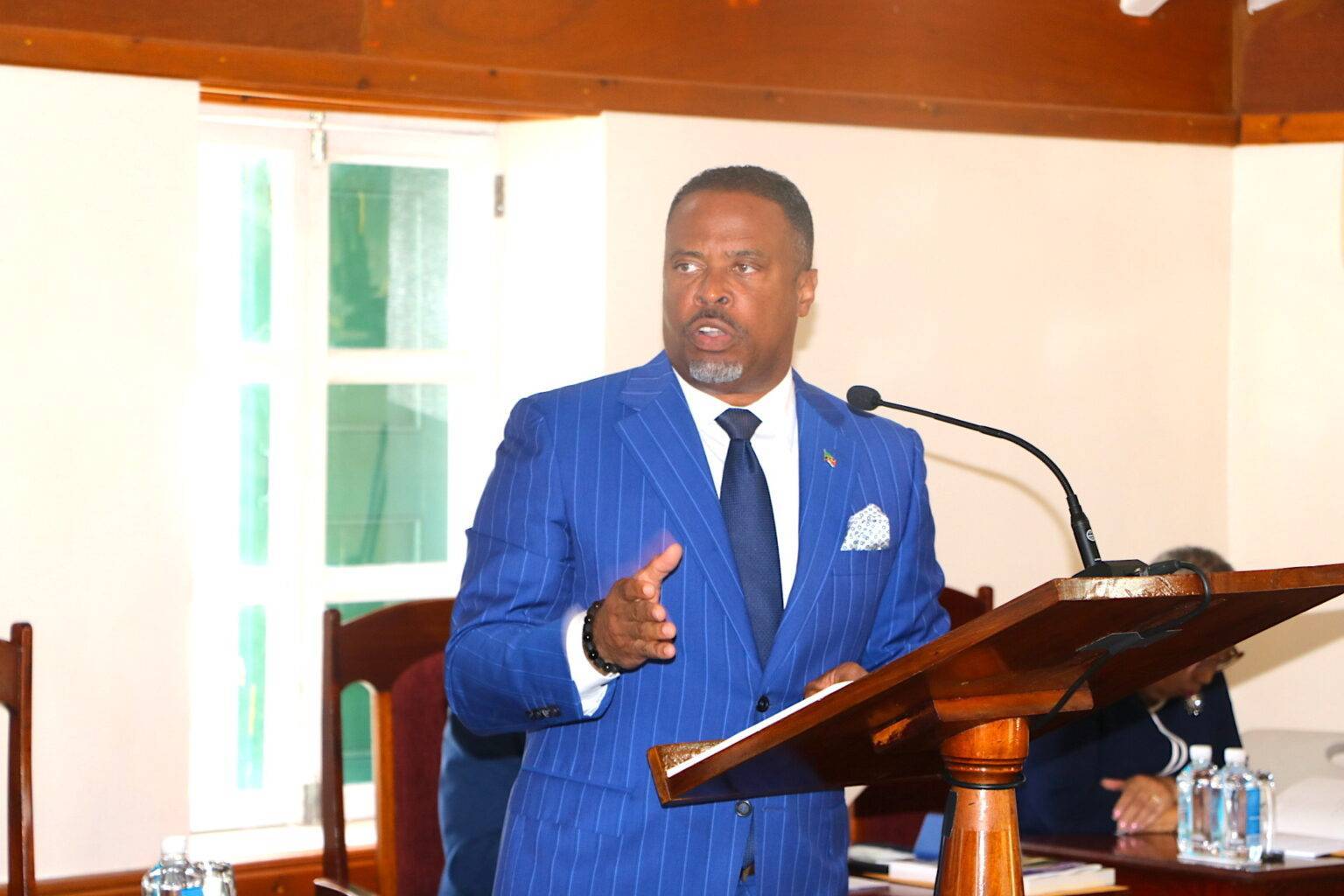NIA CHARLESTOWN NEVIS (December 06, 2023)- Finance Minister the Honourable Premier Mark Brantley says notwithstanding the government’s ability to service its debt effectively, it is critical and urgent that the Nevis Island Administration (NIA) embarks on a path to reduce the public sector debt.
As at October 31, 2023 the Central Government debt stock portfolio stood at $480.08 million, an increase of 4.8 percent when compared to the debt level of $458.27 million as at December 31, 2022.
For the period under review, the NIA’s domestic debt amounted to $450.74 million which represented 94 percent of total Central Government debt, while the foreign debt amounted to $29.34 million which amounted to 6 percent of total Central Government debt.
The Central Government debt, combined with the debts of its statutory corporations, provide an overall Public Sector Debt of $544.69 million as at October 31, 2023. This indicates an increase of 3.97 percent when compared to the Public Sector Debt level of $523.92 million as at December 31, 2022.
In his 2024 Budget Address delivered in the Nevis Island Assembly on Tuesday, December 05, the Premier stated that “Debt reduction both at the central government and at the statutory corporation levels will therefore be a critical objective during this fiscal year.”
Premier Brantley further noted that as a fiscally responsible government any increase in debt at any level is unwelcomed.
“However, given the twin problems of upward pressure on unbudgeted outlays particularly in the areas of healthcare, education and infrastructure expenditure and the downward pressure on revenue caused by a much slower than expected economic recovery, I believe that we can be proud to have kept the increase in total debt to less than 5.0 percent over this period.”As part of the NIA’s debt reduction strategy Premier Brantley said the Administration will need to maximize revenue collection and tightly control expenditure.
“Nevis must live within its means while ensuring that the necessary safety nets for our most vulnerable are maintained.”
END









